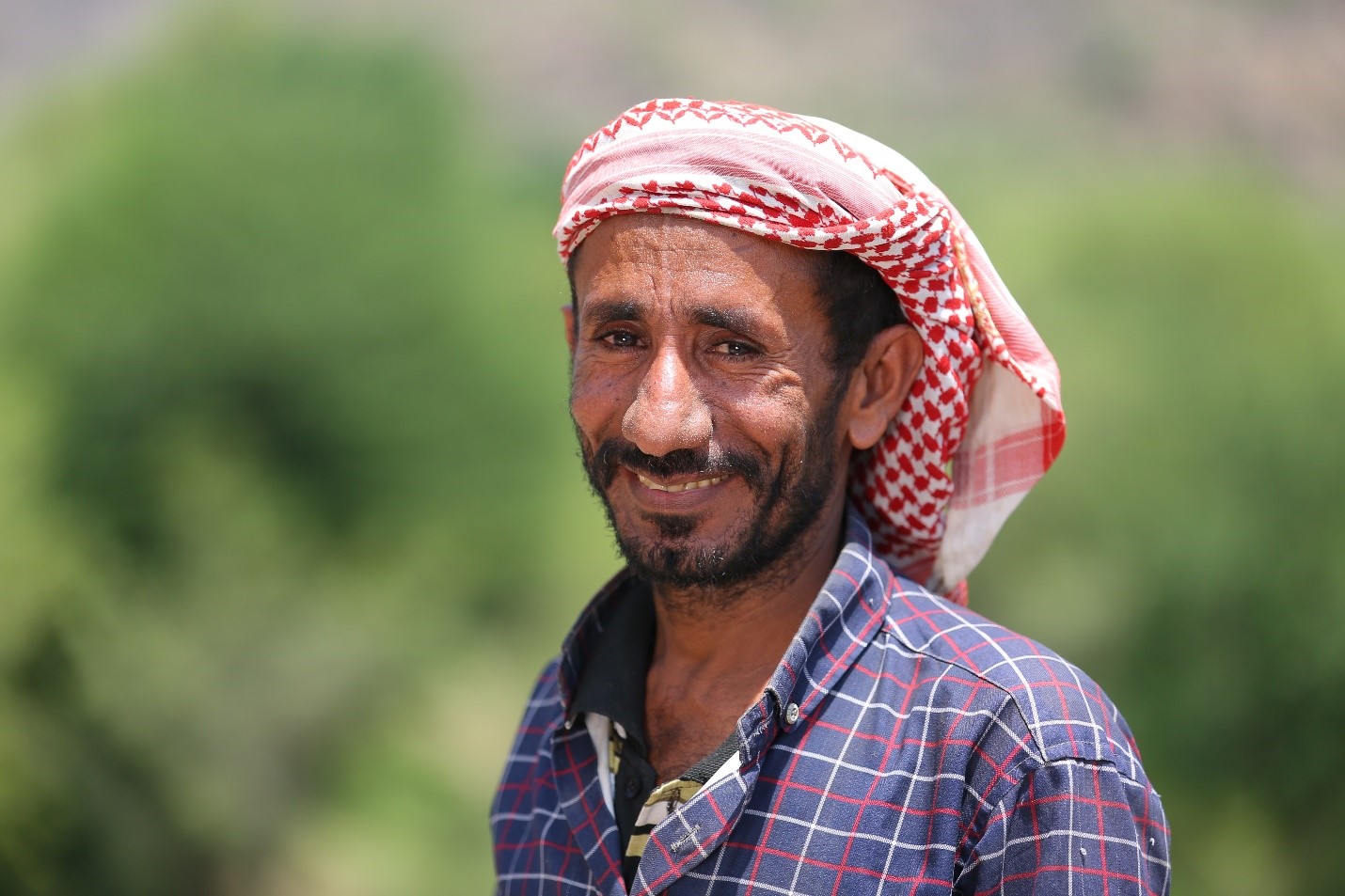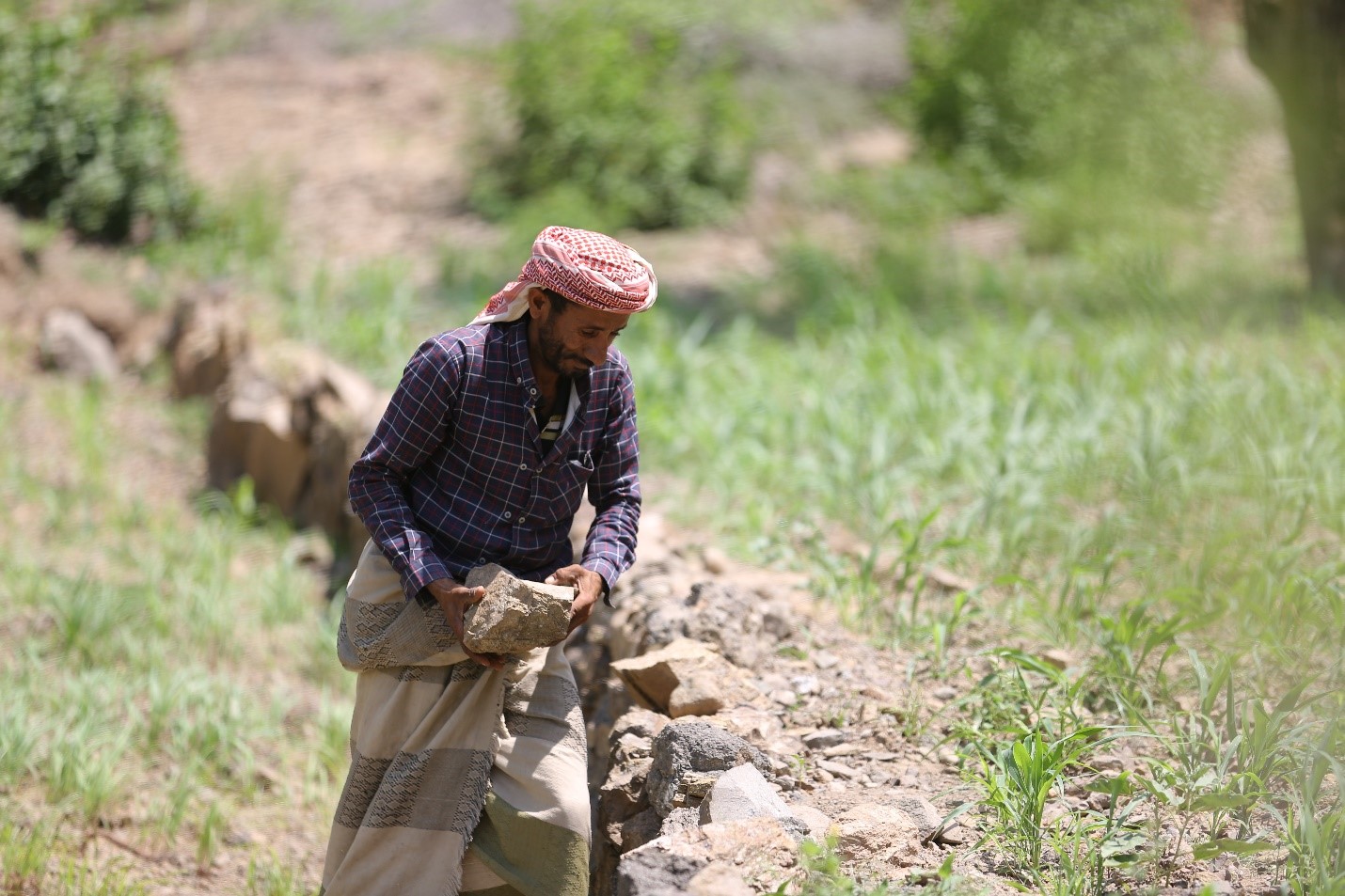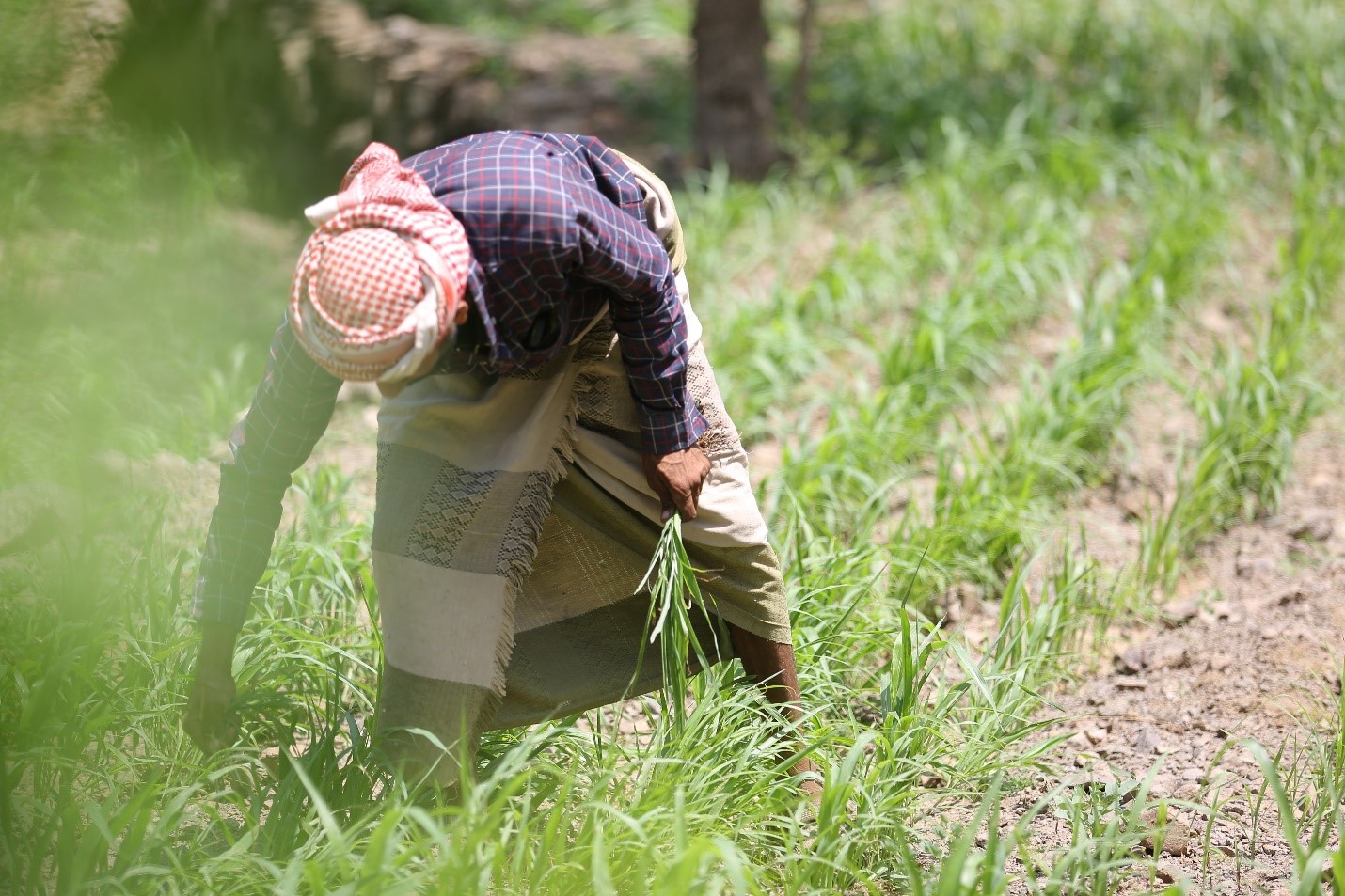An estimated 54% of the population of Yemen requires humanitarian food and livelihoods assistance. Groups who are at risk – mainly internally displaced people, vulnerable communities, female-headed households, people with disabilities, daily laborers, elderly people, and women – face the most severe forms of food insecurity. Food security is one of the most serious problems in Yemen; 21.8 % of households are currently facing food insecurity, and approximately 80 % of staple cereals are imported.
Saeed, 45 years old, is a father of eight children. He is a farmer from Ibb governorate, working on daily wages. Daily wages workers are forced to borrow money or sell some stuff to provide necessities to their families. “Sometimes I find work and sometimes I don’t. I have had to borrow money or sell some of my hard-earned assets to provide food for my family,” says Saeed. “It’s hard to see my kids starving and I can’t do anything about it.” Many families in Yemen’s rural areas don’t know where their next meal will come from, and parents usually skip meals so that their children can eat.
Agriculture has long played a dominant role in Yemen’s agricultural economy, constituting 10 percent of GDP, sustaining economic and social stability, and reducing hunger in urban and rural communities alike.


